Treatment for Hemorrhoids
Hemorrhoids
11/12/2024
Your Path to Comfort: A Complete Guide to Healing After Hemorrhoid Surgery
Overview
- Recovering from hemorrhoid surgery is a critical step to ensure lasting relief and comfort.
- Key elements of post-surgery care include managing pain, dealing with common issues like bleeding and discomfort during bowel movements, and making dietary adjustments to promote healing.
- Incorporating Diosmin + Hesperidin (Daflon® 1000) can further aid recovery by reducing inflammation and easing symptoms like pain and swelling.
- Following a proper care routine, including rest, hydration, and increased fiber intake, can significantly improve the recovery experience and help patients return to normal activities.
Introduction
Healing after hemorrhoid surgery is a crucial phase in your journey to full recovery. While it effectively alleviates the discomfort of hemorrhoids, proper post-operative care is essential to ensure optimal healing and prevent complications.
Incorporating Diosmin + Hesperidin (Daflon® 1000), an oral medication containing diosmin and hesperidin, can be beneficial during this time. It helps alleviate the pain and promote healing. This guide provides practical advice on pain management, dietary changes, and hygiene practices.
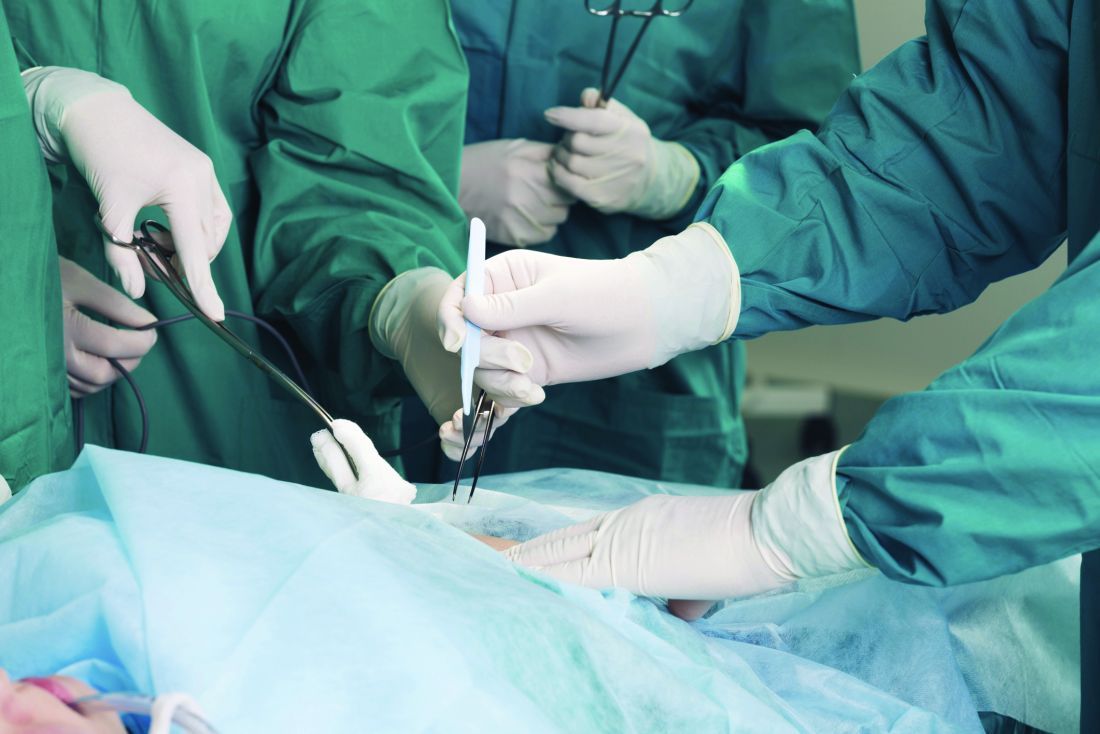
Understanding Hemorrhoid Surgery
Hemorrhoid surgery1, also known as hemorrhoidectomy, is a medical procedure to remove or shrink swollen veins in the rectum or anus. It is recommended when hemorrhoids cause severe pain, bleeding, or discomfort that cannot be managed through non-surgical treatments2.
There are various types of this surgery, including traditional excision, stapling, and rubber band ligation1, depending on the severity of the condition. This relieves symptoms and prevents future complications.
What to Expect during Recovery from Hemorrhoid Surgery
During hemorrhoid surgery recovery, expect mild pain, swelling, and discomfort, especially during bowel movements. Healing takes a few weeks with gradual improvement.
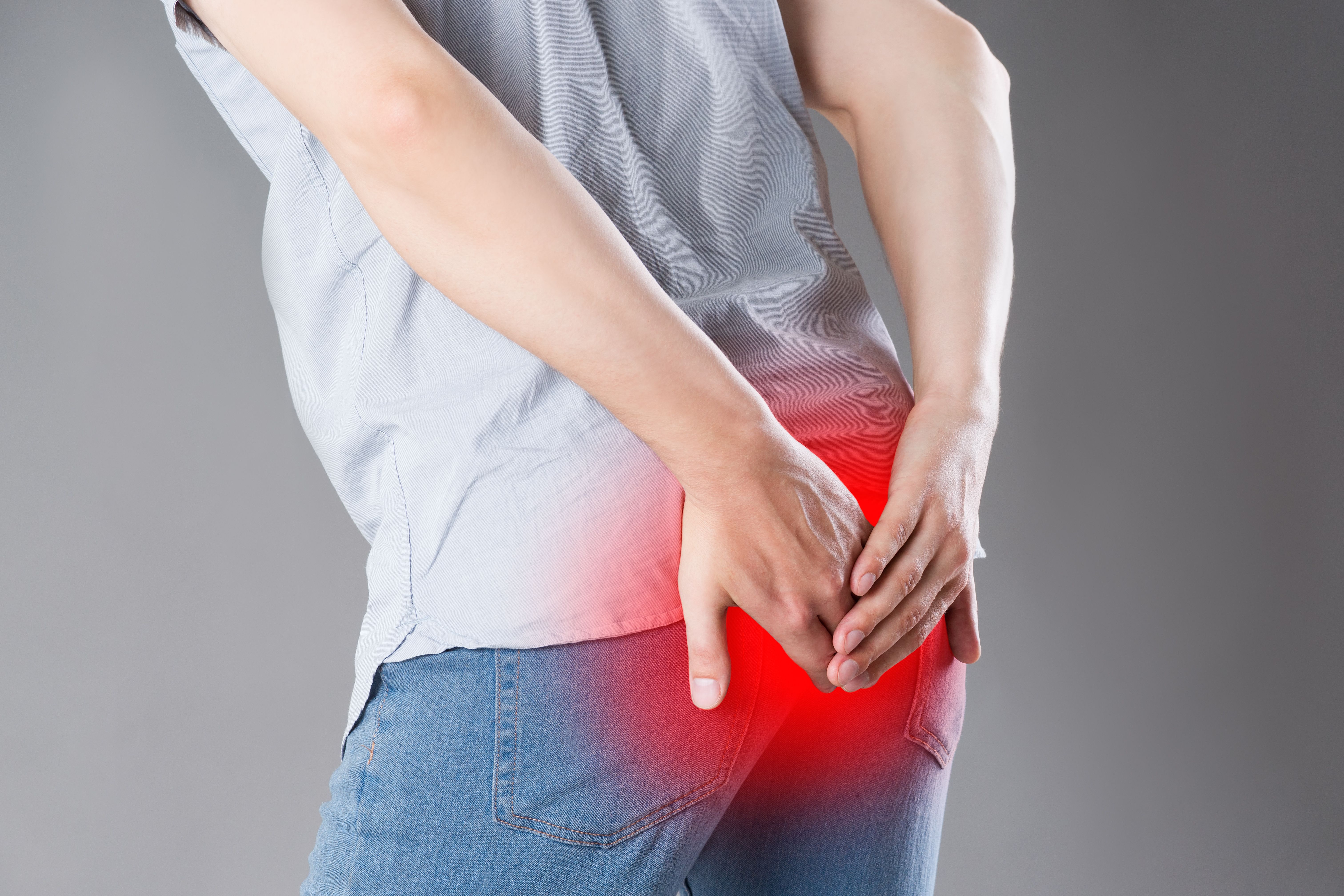
Pain and Discomfort
The most intense pain occurs during the first bowel movement, which can be distressing. While pain improves after three days, it may persist for up to two weeks, with some patients experiencing discomfort for as long as a month3.
Common symptoms include aching, throbbing, and a sensation of fullness in the anal area. Patients may also face challenges such as constipation and difficulty urinating due to muscle spasms. To manage pain, doctors may prescribe medications, and patients are often advised to take stool softeners to ease bowel movements4.
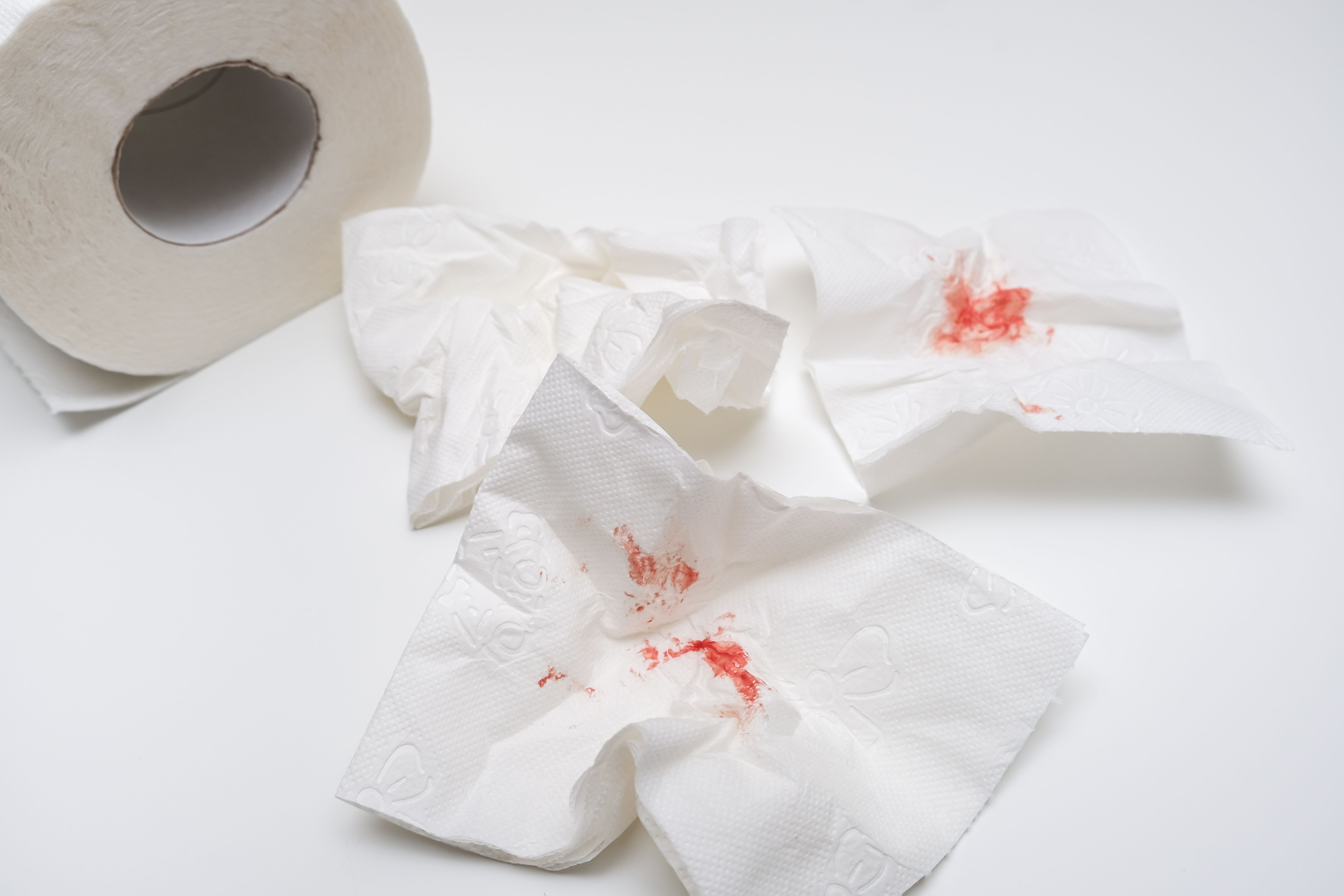
Bleeding or Discharge
After the surgery, you can experience some bleeding and discharge as part of the healing process. The discharge may appear reddish or brown, particularly after bowel movements. It will transition to a yellowish hue as healing progresses 5.
This yellow discharge is due to the surgical site healing and may contain some pus, which is not uncommon5. While its color is considered normal, any changes in color or odor should prompt a consultation with a healthcare provider to rule out infection or complications.
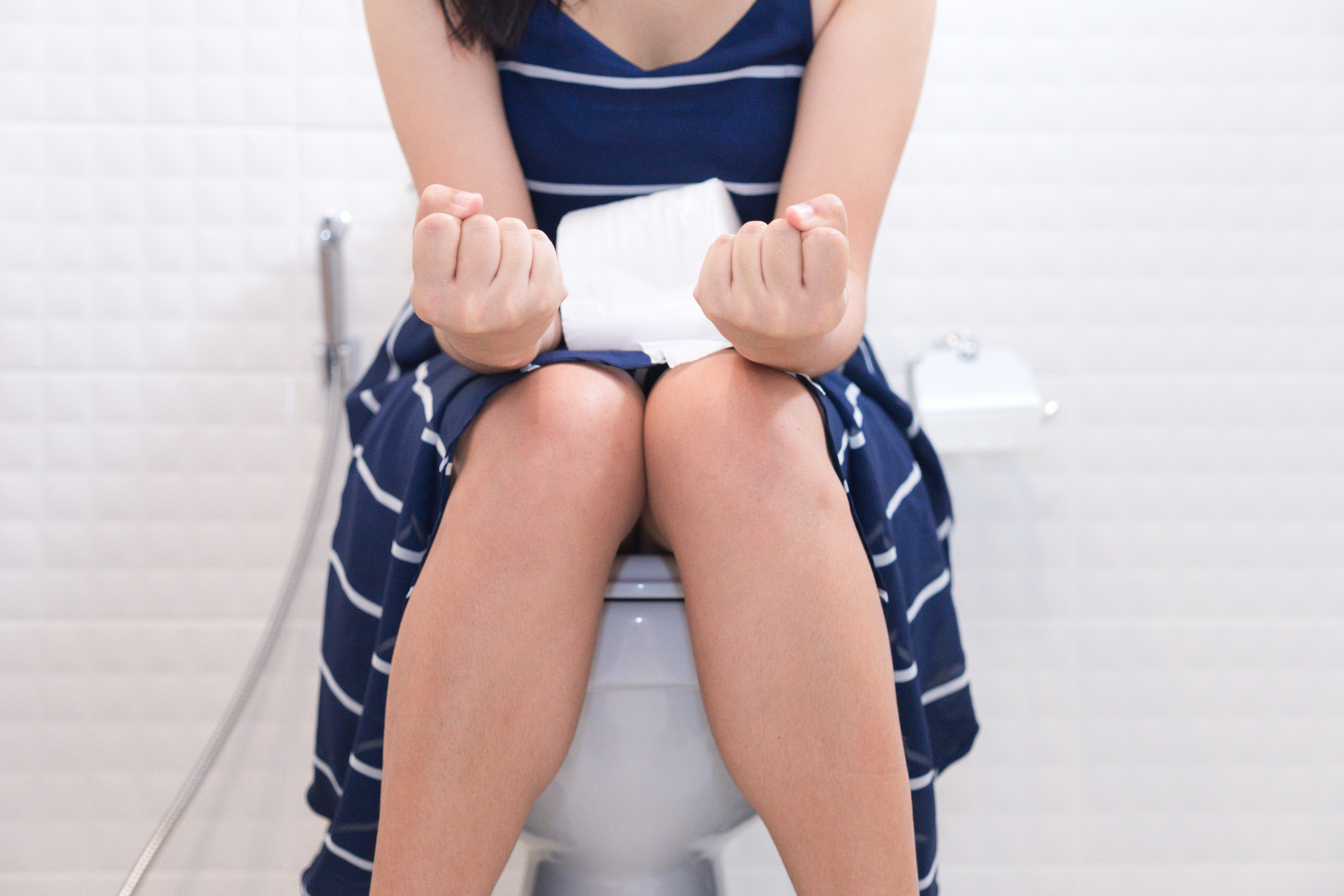
Difficulty with Bowel Movements
This discomfort can manifest as a sharp pain or a burning sensation in the anal area, exacerbated by the healing tissue and potential swelling1. Many individuals describe a feeling of tightness or pressure, which can be distressing and may lead to anxiety about succeeding bowel movements.
This fear of pain can result in a hesitance to push, potentially leading to constipation, which further complicates the situation. As you navigate your recovery, expect to deal with a combination of physical pain and psychological discomfort.
Tips for Smooth Recovery from Hemorrhoid Surgery
To ensure a smooth recovery after hemorrhoid surgery, focus on proper self-care with these tips.
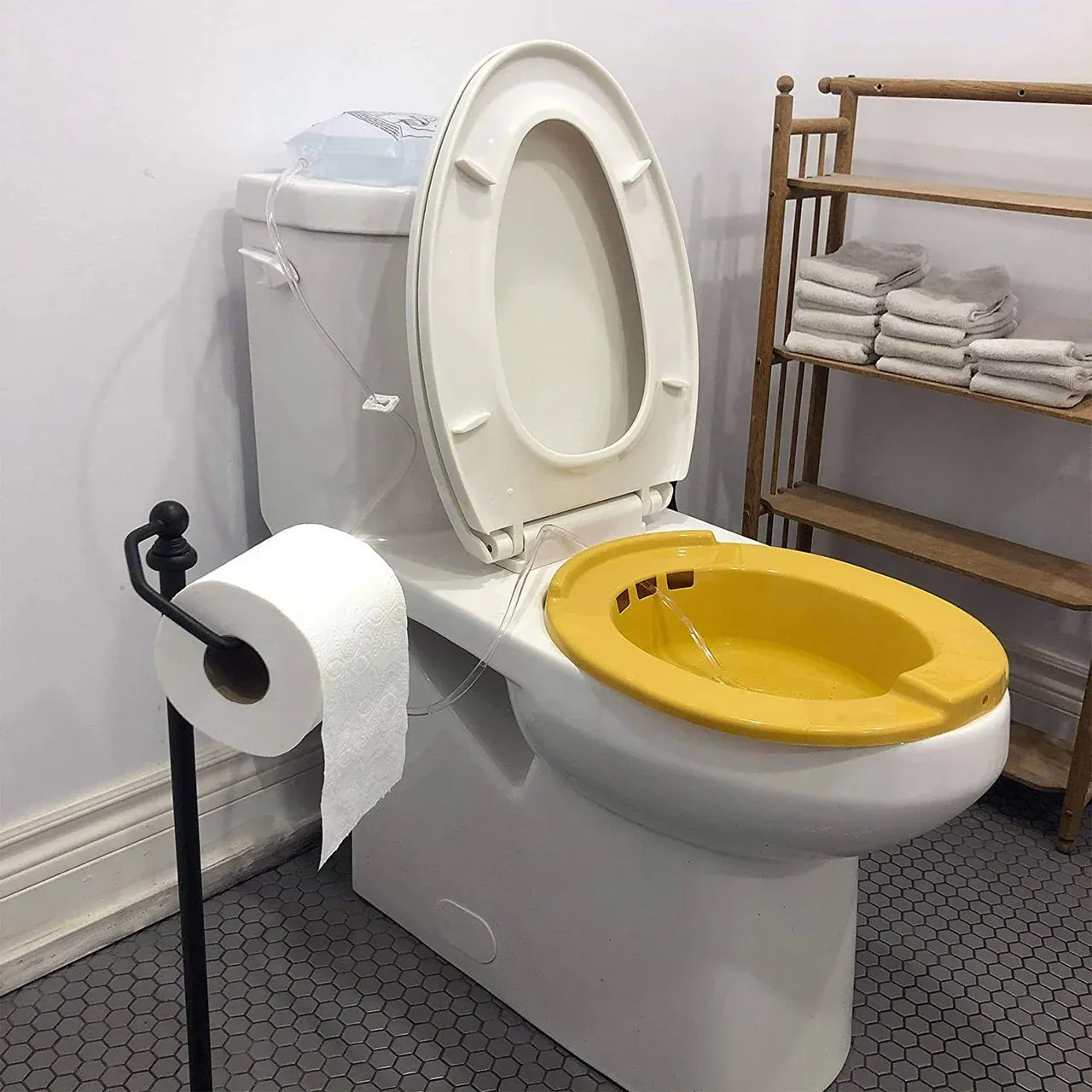
Manage Pain and Discomfort
Use warm sitz baths for 15-20 minutes daily to help maintain the pain and discomfort of bowel movements 6, especially after going to the bathroom to soothe the area and reduce swelling4.
You can also apply ice packs to numb the pain and minimize inflammation4. Keep the surgical site clean by gently wiping with soft cloths or wipes and avoid using harsh soaps.

Increase Fiber Intake
After your surgery, focus on increasing your fiber intake and staying well-hydrated to help manage pain and discomfort during bowel movements. Incorporate more high-fiber foods and whole grains into your diet7. Drink plenty of water to keep your stool soft and promote healthy digestion.

Take It Easy
Rest is crucial in the initial days following your surgery. It's essential to limit physical activity, particularly heavy lifting and vigorous exercise, for at least one to two weeks. While gentle walking can help promote circulation and reduce the risk of blood clots, be sure to avoid any activities that may cause strain4.
During bowel movements, take your time and refrain from pushing too hard. If necessary, consider using a stool softener as recommended by your doctor to ease the process8. Prioritizing rest and gentle movement will support your recovery and help minimize discomfort.
Key Takeaway
Healing after hemorrhoid surgery requires careful attention to self-care and adherence to medical advice to ensure a smooth recovery9. By following these guidelines, you can recover more comfortably and return to your normal activities.
Don't let hemorrhoids slow you down. While lifestyle changes can help, Diosmin + Hesperidin (Daflon® 1000) offers a reliable solution. With its powerful active ingredient MPFF, you can effectively manage your hemorrhoids and get back to your normal routine. Consult with your doctor to check if Diosmin + Hesperidin (Daflon® 1000) is right for you. Start our journey to relief today.
REFERENCES
- https://www.ncbi.nlm.nih.gov/books/NBK279465/
- https://my.clevelandclinic.org/health/procedures/hemorrhoidectomy
- https://myhealth.alberta.ca/Health/aftercareinformation/pages/conditions.aspx?hwid=ud1119#:~:text=After%20you%20have%20hemorrhoids%20removed,yellow%20fluids%20from%20your%20anus.
- https://www.verywellhealth.com/after-hemorrhoid-surgery-3156810
- https://www.mountsinai.org/health-library/discharge-instructions/hemorrhoid-removal-discharge
- https://www.healthline.com/health/sitz-bath
- https://www.medicalnewstoday.com/articles/hemorrhoids-high-fiber-diet
- https://www.healthline.com/health/poop-strain
- https://driphydration.com/blog/hemorrhoid-surgery-recovery/?srsltid=AfmBOorpbyBoj-Q_uAtgdG-vz8tf0_dmvRKTOs5ltfyc4N2sxcbOePT1
2026